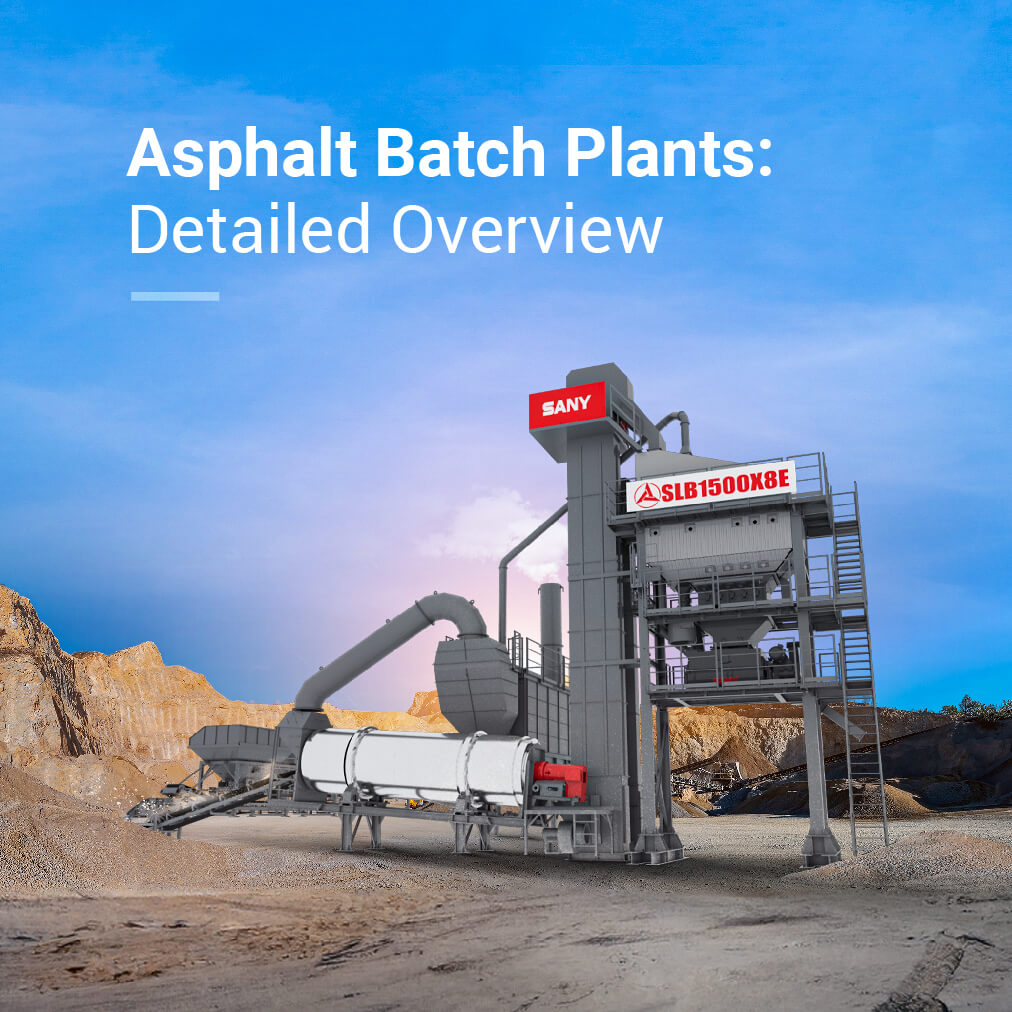A Complete Guide to Understanding Asphalt Batch Plants

Understanding how an asphalt batch plant works is crucial for ensuring the production of high-quality asphalt, which plays a vital role in building durable and long-lasting roads. These plants not only improve efficiency but also help optimize material usage, making road construction more cost-effective and sustainable.
Having a solid grasp of asphalt batch plants allows project managers to maintain strict quality control, reduce the risk of defects, and ensure that the final product meets specific project requirements. In this blog, we’ll take a closer look at what an asphalt batch plant is, how it operates, and why it’s essential for successful road construction projects.
What is an Asphalt Batch Plant?
An asphalt batch plant is a facility designed to produce hot mix asphalt (HMA) in batches rather than through a continuous process. This method offers greater flexibility, allowing the plant to create different types of asphalt mixtures such as HMA, WMA (warm mix asphalt), and CMA (cold mix asphalt). The precision and adaptability of these plants make them ideal for a wide range of road construction projects, from small-scale repairs to large highway developments.
Key Components of an Asphalt Batch Plant
Several key components work together to ensure the smooth operation of an asphalt batch plant. Here are the main parts:
Cold Feeder Bins: These bins store different sizes of aggregates and feed them into the system in controlled amounts, ensuring a consistent supply of raw materials.
Conveyor Belt: This component transports the cold aggregates from the feeder bins to the drying drum, enabling a continuous and steady flow of materials.
Drying Drum: The drying drum heats the aggregates to remove moisture and reach the desired temperature. It is equipped with a powerful burner for efficient heating.
Elevator: The elevator lifts the heated aggregates from the drying drum to the vibrating screen, facilitating further processing.
Vibrating Screen: This screen separates the hot mix into various sizes, ensuring accurate classification before mixing.
Hot Bins: These temporary storage units hold the heated and classified aggregates until they are weighed and ready for mixing.
Weighing Systems: Precise weighing systems measure the correct proportions of aggregates, filler, and bitumen to ensure a balanced mix.
Pugmill Mixing Unit: The pugmill thoroughly mixes the ingredients to create a uniform and high-quality hot mix asphalt.
Dust Collection System: This system minimizes dust emissions, promoting environmental compliance and reducing pollution.
Control System: An advanced control system provides both manual and automated control over the entire process, allowing operators to monitor and adjust operations for optimal performance.
Working Principle of an Asphalt Batch Plant
The process begins with aggregates stored in cold feeder bins, where they are measured and transferred to the drying drum via a conveyor belt. Inside the drying drum, the aggregates are heated to remove moisture using a powerful burner. Once heated, the aggregates are lifted by an elevator to the vibrating screen, where they are separated by size and stored in hot bins.
Next, the required amounts of aggregates, bitumen, and filler are weighed and fed into the pugmill mixing unit. The pugmill thoroughly blends these materials to create a homogenous hot mix asphalt. The finished product is then stored in a heated silo until it is ready for transportation to the construction site. This batching approach ensures precise control over mix composition, leading to high-quality results that meet specific project needs.
Why Asphalt Batch Plants Are Essential for Construction Projects
Asphalt batch plants play a critical role in modern road construction. Here's why:
Quality Control: These plants allow for precise control over the mix, ensuring the production of durable, high-performance asphalt that can withstand heavy traffic and harsh weather conditions.
Versatility: They can produce various types of asphalt, including HMA, WMA, and CMA, making them suitable for a wide range of applications—from small repairs to major infrastructure projects.
Cost-Effectiveness: Efficient use of materials and energy makes these plants a cost-effective solution for long-term road construction projects.
Environmental Benefits: Modern batch plants incorporate eco-friendly technologies like baghouse filters and warm mix asphalt, which reduce emissions and promote sustainability.
Recycling Capabilities: Many plants can incorporate reclaimed asphalt pavement (RAP), helping to reduce waste and conserve natural resources.
Customization: These plants offer the flexibility to adjust mix designs based on specific project requirements, ensuring optimal performance for each application.
To Conclude
Asphalt batch plants are essential in the construction industry due to their ability to produce high-quality, consistent asphalt mixtures. Their precision, versatility, and efficiency make them a key asset in building durable and long-lasting roads.
Sany India is one of the top asphalt mixing plant manufacturers in the country. Our SLB1500X8E asphalt batch plant delivers excellent performance with a capacity of 120T/h at 3% moisture content. With a maximum power consumption of 275 kW, it’s engineered for efficiency and productivity. The design reduces preparation time by 15% and improves fuel efficiency by 10%, making it a reliable and eco-friendly choice for your road construction projects.
Choose Sany India’s Asphalt Batch Plant for unmatched reliability, efficiency, and performance in your next road development initiative.
Cpu Server,Cpu Cooler Parts,Gpu Aluminum Cooling Plate,Copper Heat Sink
Suzhou Wint Electric Co., Ltd , https://www.wintocool.com